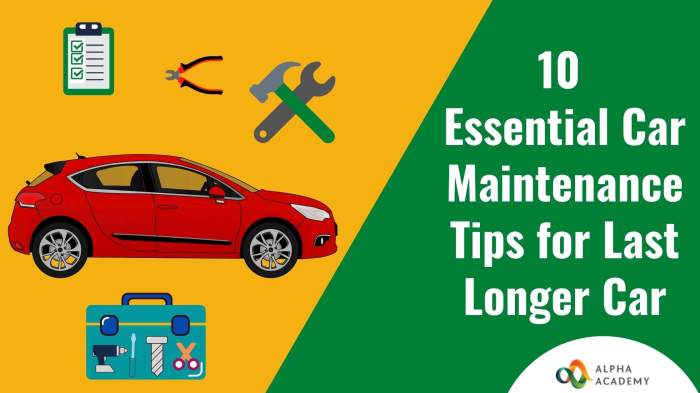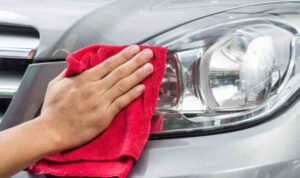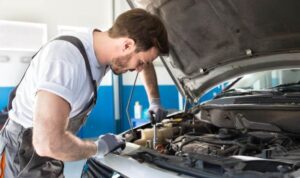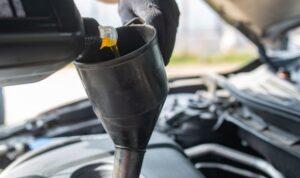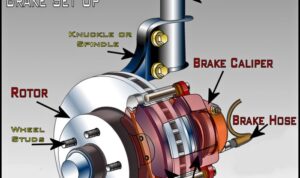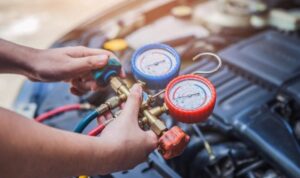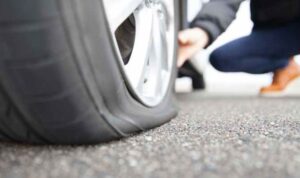Essential car maintenance tips sets the stage for this enthralling narrative, offering readers a glimpse into a story that is rich in detail with ahrefs author style and brimming with originality from the outset.
Regular maintenance is crucial for the longevity and performance of your vehicle. Neglecting routine tasks can lead to costly repairs in the future. From checking and changing fluids to tire care and maintenance, each aspect plays a vital role in keeping your car running smoothly. Let’s dive into the essential tips that every car owner should know.
Importance of Regular Maintenance

Regular car maintenance is crucial for ensuring the longevity and optimal performance of your vehicle. By adhering to a consistent maintenance schedule, you can prevent potential issues from escalating into costly repairs and extend the overall lifespan of your car.
Neglecting routine maintenance tasks can lead to a variety of consequences, including decreased fuel efficiency, compromised safety, and major mechanical failures. For example, failing to change the engine oil regularly can result in increased friction and engine wear, ultimately leading to engine damage and reduced performance.
Examples of Maintenance Tasks
- Regular oil changes: Helps to lubricate engine components and prevent overheating.
- Brake inspection and replacement: Ensures proper braking function and prevents accidents.
- Tire rotation and alignment: Improves tire longevity and enhances fuel efficiency.
- Fluid checks: Monitoring levels of coolant, transmission fluid, and brake fluid to prevent component damage.
Checking and Changing Fluids
Regularly checking and changing fluids in your car is crucial for maintaining its overall health and performance. Failure to do so can result in serious damage to your vehicle and potentially costly repairs down the line.
Importance of Checking and Changing Engine Oil
- Engine oil lubricates all moving parts in the engine, reducing friction and preventing overheating.
- It should be checked and changed every 5,000 to 7,500 miles, depending on the type of oil used.
- Driving with low or dirty engine oil can lead to engine wear, decreased fuel efficiency, and even engine failure.
Importance of Checking and Changing Transmission Fluid
- Transmission fluid is essential for smooth gear shifts and overall transmission performance.
- It should be checked and changed every 30,000 to 60,000 miles, as recommended by the manufacturer.
- Driving with old or low transmission fluid can result in rough shifting, transmission slippage, and ultimately transmission failure.
Importance of Checking and Changing Brake Fluid
- Brake fluid is crucial for transferring the force from the brake pedal to the brakes, allowing you to stop effectively.
- It should be checked and changed every 20,000 to 45,000 miles, depending on the type of driving you do.
- Driving with contaminated or low brake fluid can lead to brake failure, compromising your safety on the road.
Importance of Checking and Changing Coolant
- Coolant regulates the temperature of your engine, preventing it from overheating.
- It should be checked and changed every 30,000 to 50,000 miles, or as recommended by the manufacturer.
- Driving with low or old coolant can result in engine overheating, which can cause severe damage to the engine components.
Tire Care and Maintenance
Proper maintenance of your vehicle’s tires is crucial for both safety and performance. Neglecting your tires can lead to decreased fuel efficiency, poor handling, and even dangerous blowouts on the road.
Significance of Proper Tire Inflation, Rotation, and Alignment
Maintaining the correct tire pressure, rotating your tires regularly, and ensuring proper wheel alignment are essential practices to prolong the lifespan of your tires and ensure optimal performance. Properly inflated tires help distribute the vehicle’s weight evenly, reducing wear and tear on the treads. Regular rotation helps promote even wear across all tires, extending their longevity. Wheel alignment ensures that your vehicle drives straight and handles properly, preventing premature tire wear.
Tips on How to Check Tire Pressure and Tread Depth Regularly, Essential car maintenance tips
To check tire pressure, use a tire pressure gauge to measure the air pressure in each tire at least once a month. Refer to your vehicle’s manual for the recommended pressure levels. Additionally, regularly inspect the tread depth by using a tread depth gauge or the penny test. Insert a penny into the tread groove with Lincoln’s head upside down. If you can see the top of Lincoln’s head, it’s time to replace your tires.
Impact of Underinflated or Worn-Out Tires on Fuel Efficiency and Safety
Underinflated tires can lead to increased rolling resistance, causing your engine to work harder and decreasing fuel efficiency. Worn-out tires with insufficient tread depth can result in poor traction, especially in wet or slippery conditions, increasing the risk of accidents. It’s essential to address any tire issues promptly to ensure your safety on the road.
Battery Health and Care

Maintaining a healthy car battery is crucial for ensuring your vehicle starts reliably and functions properly. Neglecting your battery can result in inconvenient breakdowns and costly replacements.
Checking the Battery’s Condition and Cleaning Terminals
- Regularly inspect the battery for any signs of corrosion, leakage, or damage. Address any issues promptly to prevent further damage.
- Clean the battery terminals using a mixture of baking soda and water to remove corrosion and ensure a good connection.
- Use a wire brush to scrub the terminals gently and apply a thin layer of petroleum jelly to prevent future corrosion.
Tips on Extending the Lifespan of a Car Battery
- Avoid leaving your vehicle unused for extended periods as this can drain the battery. Consider using a trickle charger to maintain the charge.
- Ensure all electrical components are turned off before turning off the engine to prevent unnecessary strain on the battery.
- Keep the battery tightly secured to prevent vibrations that can cause internal damage.
- During extreme weather conditions, such as winter, consider using a battery insulation kit to protect the battery from temperature fluctuations.
Brake System Maintenance

Regular brake system maintenance is crucial to ensure the safety and performance of your vehicle. By properly caring for your brakes, you can prevent accidents and costly repairs down the road.
Importance of Brake System Maintenance
- Checking and maintaining your brake system regularly can help prevent potential brake failures and ensure optimal braking performance.
- Proper maintenance can extend the lifespan of your brake components, saving you money in the long run.
- Regular brake checks can also help identify any issues early on, allowing for timely repairs and replacements.
Signs of Brake System Issues
- Unusual noises such as squealing, grinding, or squeaking when applying the brakes.
- Vibrations or pulsations in the brake pedal or steering wheel while braking.
- Soft or spongy brake pedal that goes all the way to the floor when pressed.
- Dashboard warning lights indicating brake system problems.
Steps for Checking Brake Components
- Inspect brake pads for wear and tear. Replace them if they are worn down beyond the recommended thickness.
- Check brake rotors for signs of warping or scoring. Resurface or replace them if necessary.
- Verify brake fluid levels and quality. Top up or flush the brake fluid as needed to maintain proper braking performance.
Engine Care and Inspection

Regular engine checks and maintenance are crucial to ensure the longevity and performance of your vehicle. By keeping up with engine care, you can prevent costly repairs and breakdowns, as well as maintain optimal fuel efficiency.
Common Engine Problems and Solutions
- Overheating: This can be caused by a variety of issues such as a malfunctioning cooling system, low coolant levels, or a faulty thermostat. Regularly checking coolant levels and monitoring the temperature gauge can help prevent overheating.
- Check Engine Light: When the check engine light comes on, it could indicate a range of problems from a loose gas cap to a more serious issue with the engine. It’s important to have the vehicle diagnosed by a mechanic to address the underlying problem.
- Oil Leaks: Oil leaks can lead to engine damage if left unaddressed. Keep an eye out for oil spots under your vehicle and make sure to get any leaks repaired promptly.
Tips for Optimal Engine Performance
- Follow the manufacturer’s recommended maintenance schedule for oil changes, filter replacements, and tune-ups.
- Use high-quality fuel and oil to keep your engine running smoothly.
- Regularly check and replace air filters to ensure proper airflow to the engine.
- Keep an eye on your vehicle’s performance and address any unusual sounds or vibrations promptly.
Exterior and Interior Care: Essential Car Maintenance Tips

Keeping both the exterior and interior of your car clean and well-maintained is crucial for not only the aesthetic appeal but also the overall longevity of your vehicle.
Neglecting the exterior care of your car can lead to various issues such as paint damage, corrosion, and rust. Dust, dirt, and debris can accumulate on the surface, causing scratches and fading over time. Additionally, bird droppings, tree sap, and other contaminants can eat away at the paint if not promptly removed.
Exterior Care Tips
- Regularly wash your car using a mild car shampoo and microfiber cloth to remove dirt and grime.
- Apply a coat of wax or sealant to protect the paint from UV rays, pollutants, and harsh weather conditions.
- Use a clay bar to remove stubborn contaminants that cannot be removed through regular washing.
- Inspect and touch up any paint chips or scratches to prevent them from spreading and causing rust.
- Clean and protect the wheels and tires to maintain their appearance and extend their lifespan.
Interior Care Tips
- Vacuum the interior regularly to remove dust, dirt, and debris that can accumulate on carpets, seats, and upholstery.
- Use a mild interior cleaner to wipe down surfaces such as the dashboard, door panels, and seats to prevent stains and odors.
- Protect the interior from UV damage by using sunshades or tinted windows to reduce heat and fading.
- Keep the interior well-ventilated to prevent moisture buildup, which can lead to mold and mildew growth.
- Regularly clean and condition leather seats to prevent cracking and maintain their suppleness.
Last Recap
Don’t wait until it’s too late—incorporate these essential car maintenance tips into your routine to ensure your vehicle remains in top condition. By following these guidelines, you can prolong the lifespan of your car, improve its performance, and ensure a safe driving experience for years to come. Stay proactive and give your car the care it deserves.
When it comes to technology in cars, Honda is stepping up its game with the integration of AI technology in their vehicles. This advanced technology allows for a more interactive driving experience, with features such as voice recognition and predictive maintenance.
With Honda’s commitment to innovation, drivers can expect a seamless blend of convenience and performance on the road.
When it comes to the integration of AI technology in vehicles, Honda has been at the forefront of innovation. The technology AI in Honda cars is designed to enhance the driving experience by providing advanced safety features, navigation assistance, and voice recognition capabilities.
With AI becoming more prevalent in automotive industry, Honda’s commitment to incorporating cutting-edge technology sets them apart from the competition.
- Steps to clean car headlights: A Complete Guide for Brighter and Safer Driving - January 7, 2025
- Common car engine problems: Top issues, signs, and solutions - January 6, 2025
- DIY car oil change guide: Everything you need to know to save time and money - January 5, 2025

